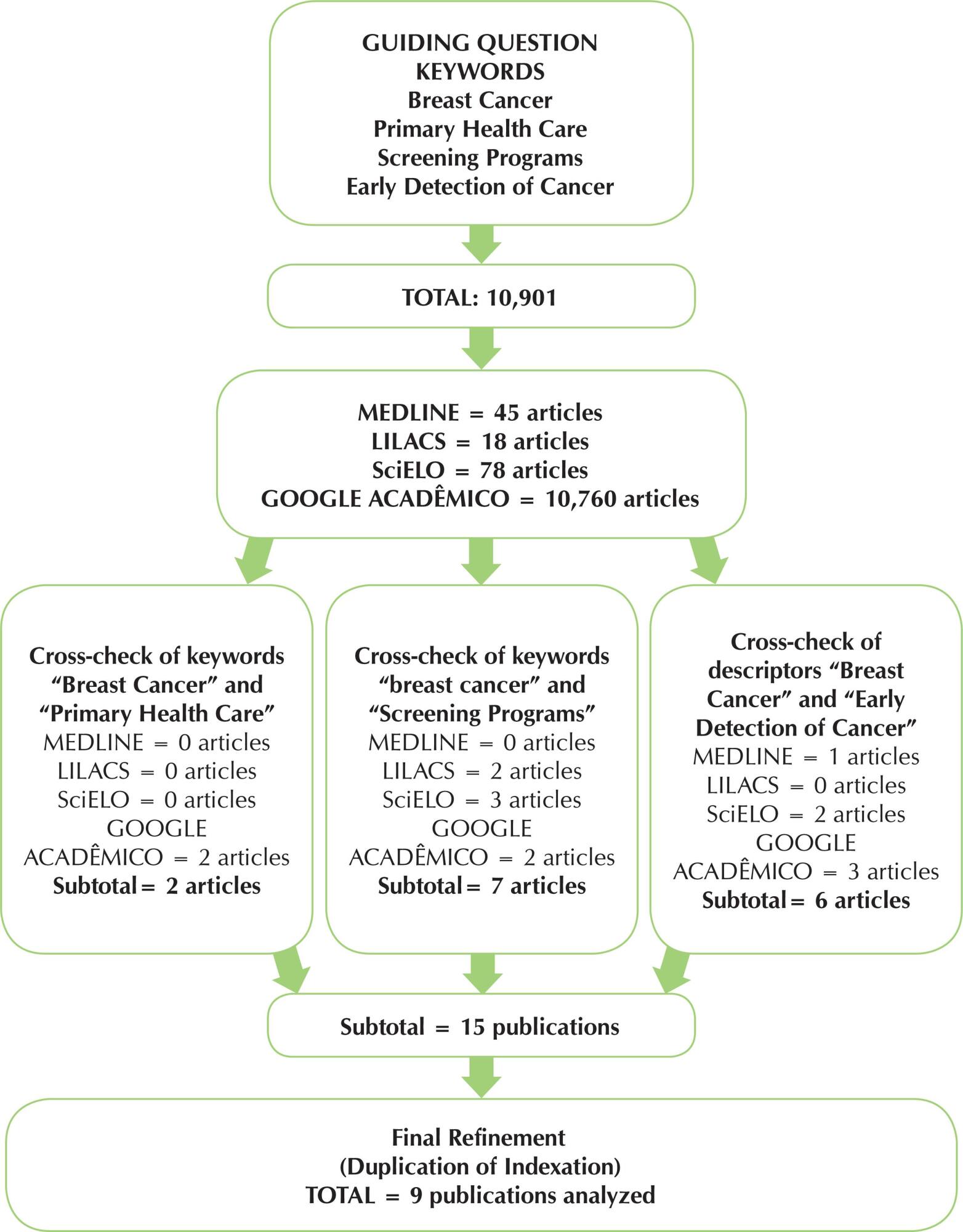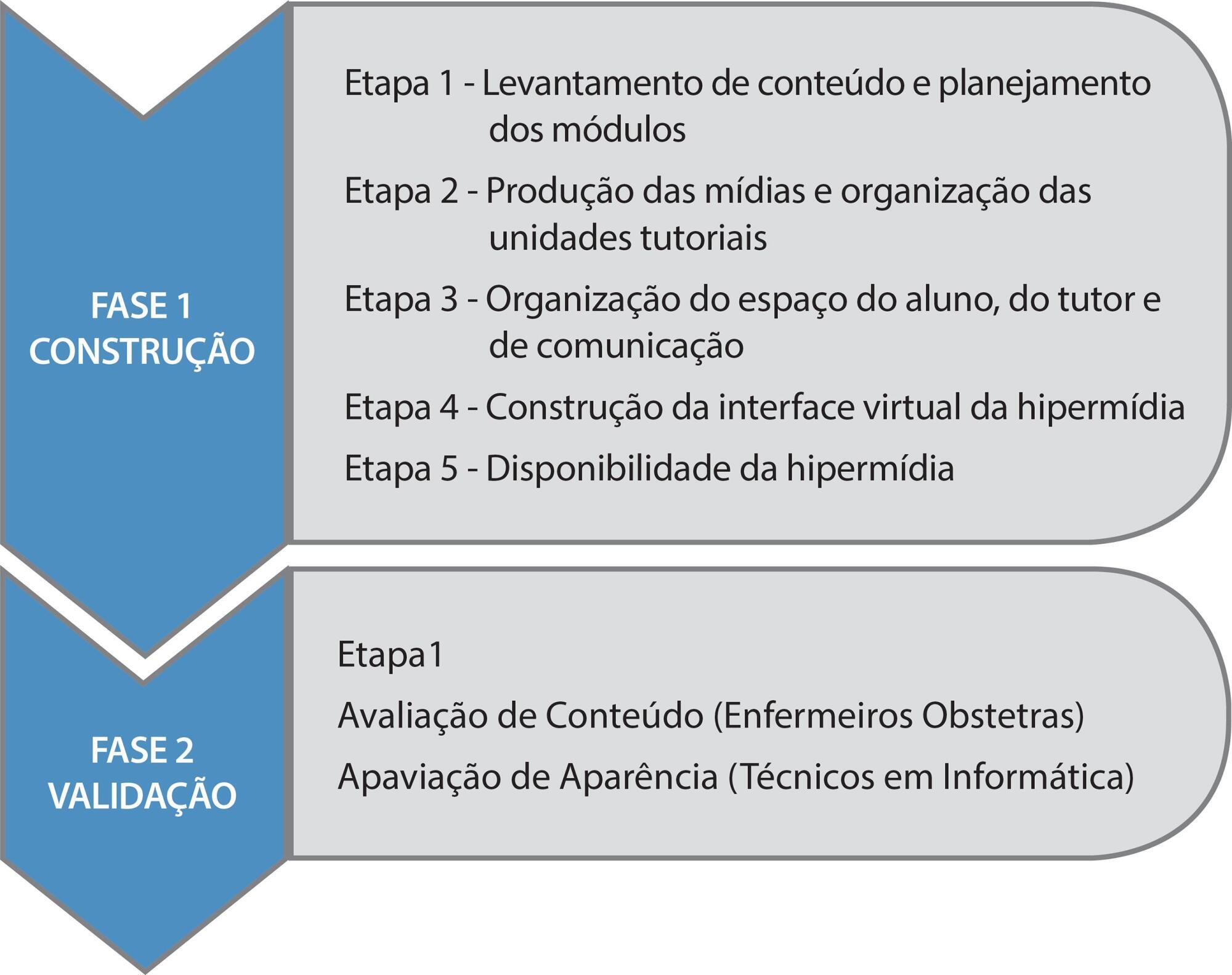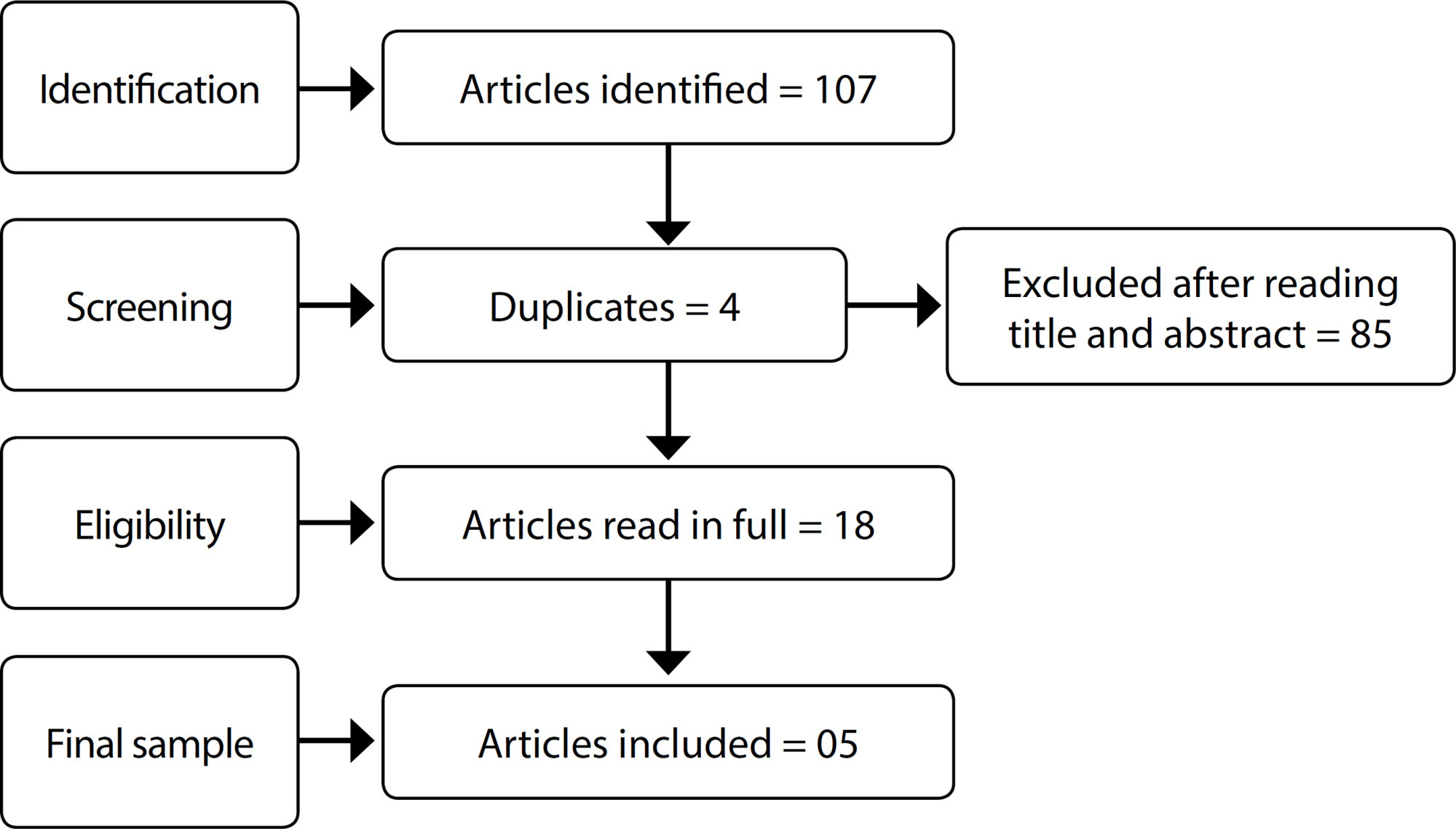-
RESEARCH
Accessibility assessment of assistive technology for the hearing impaired
Revista Brasileira de Enfermagem. 2016;69(5):833-839
01-01-2016
Abstract
RESEARCHAccessibility assessment of assistive technology for the hearing impaired
Revista Brasileira de Enfermagem. 2016;69(5):833-839
01-01-2016DOI 10.1590/0034-7167.2016690503
Views0ABSTRACT
Objective:
to assess the automatic accessibility of assistive technology in online courses for the hearing impaired.
Method:
evaluation study guided by the Assessment and Maintenance step proposed in the Model of Development of Digital Educational Material. The software Assessor and Simulator for the Accessibility of Sites (ASES) was used to analyze the online course “Education on Sexual and Reproductive Health: the use of condoms” according to the accessibility standards of national and international websites.
Results:
an error report generated by the program identified, in each didactic module, one error and two warnings related to two international principles and six warnings involved with six national recommendations. The warnings relevant to hearing-impaired people were corrected, and the course was considered accessible by automatic assessment.
Conclusion:
we concluded that the pages of the course were considered, by the software used, appropriate to the standards of web accessibility.
Keywords:Digital ExclusionDistance EducationInternetPeople with Hearing DisabilitiesSelf-help EquipmentSee more -
RESEARCH
Functional disability: health conditions and physical activity practice in older adults
Revista Brasileira de Enfermagem. 2016;69(5):825-832
01-01-2016
Abstract
RESEARCHFunctional disability: health conditions and physical activity practice in older adults
Revista Brasileira de Enfermagem. 2016;69(5):825-832
01-01-2016DOI 10.1590/0034-7167.2016690502
Views0See moreABSTRACT
Objective:
to verify the prevalence of functional disability among older adults and how it can affect their health conditions and the regular practice of physical activities.
Method:
this is a household and cross-sectional study conducted with older adults of both sexes. We verified the variables associated with functional disability by Poisson’s regression.
Results:
around 420 older adults participated in this study (68.1% of them being women). We observed a statistically significant association between functional disability, the number of chronic diseases, self-assessed health conditions, and the practice of physical activities; the latter only being found among men. Older adults who reported presenting four or more chronic diseases, self-assessed their health conditions as poor, and were not used to practice physical activities, showing high prevalence of functional disability.
Conclusion:
considering the changeable character of these variables, we recommend that prevention actions be taken, mainly at primary level, to delay the emergence of disability.
-
RESEARCH
Organizational culture of a psychiatric hospital and resilience of nursing workers
Revista Brasileira de Enfermagem. 2016;69(5):817-824
01-01-2016
Abstract
RESEARCHOrganizational culture of a psychiatric hospital and resilience of nursing workers
Revista Brasileira de Enfermagem. 2016;69(5):817-824
01-01-2016DOI 10.1590/0034-7167.2016690501
Views0ABSTRACT
Objective:
to analyze the organizational culture of a psychiatric hospital and identify the capacity of resilience of nursing workers.
Method:
quantitative research. For data collection, were used the Brazilian Instrument for Evaluation of Organizational Culture (IBACO – Instrumento Brasileiro para Avaliação da Cultura Organizacional) and the Resilience Scale (RS).
Results:
participants reported the existence of centralization of power and devaluation of workers, despite recognizing the existence of collaboration at work and practices for improving interpersonal relations. In relation to the capacity of resilience, 50% of workers showed high level, and 42.9% a medium level of resilience. The correlation tests revealed negative values between the IBACO and RS domains, indicating that the lower the appreciation of individuals in the institution, the greater their capacity of resilience.
Conclusion:
the organizational values reflect the work organization model in the institution that devalues the workers’ needs and requires greater capacity of resilience.
Keywords:Hospital AdministrationNursingOrganizational CulturePsychological ResilienceWorkers' HealthSee more -
EDITORIAL
Fazendo nossa pesquisa em enfermagem ser relevante
Revista Brasileira de Enfermagem. 2016;69(5):813-814
01-01-2016
Abstract
EDITORIALFazendo nossa pesquisa em enfermagem ser relevante
Revista Brasileira de Enfermagem. 2016;69(5):813-814
01-01-2016DOI 10.1590/0034-7167-2015-0156
Views0Enfermeiros em todo o mundo estão cada vez mais expostos a metodologias de pesquisa novas e interessantes. Ao mesmo tempo, sentem uma pressão considerável para assegurar que os estudos a que se propõem são suficientemente rigorosos metodologicamente para passar pelo crivo de avaliação para fomento ou publicação. Nesse contexto, é cada vez mais importante lembrarmos […]See more -
EDITORIAL
Making our nursing research matter
Revista Brasileira de Enfermagem. 2016;69(5):813-814
01-01-2016
Abstract
EDITORIALMaking our nursing research matter
Revista Brasileira de Enfermagem. 2016;69(5):813-814
01-01-2016DOI 10.1590/0034-7167-2015-0156
Views0Nurses worldwide are being increasingly exposed to new and interesting research methodologies. At the same time, they are feeling considerable pressure to ensure that the studies they propose are sufficiently methodologically rigorous to pass the scrutiny of review for funding or publication. In this context, it is increasingly important to remind ourselves that methodological rigor […]See more -
REVIEW
The Spiritism as therapy in the health care in the epilepsy
Revista Brasileira de Enfermagem. 2016;69(4):804-810
01-01-2016
Abstract
REVIEWThe Spiritism as therapy in the health care in the epilepsy
Revista Brasileira de Enfermagem. 2016;69(4):804-810
01-01-2016DOI 10.1590/0034-7167.2016690425i
Views0See moreABSTRACT
Objective:
to present a brief history of Spiritism, the vision of epilepsy by Spiritism, and the potential of spirituality and religiosity care as complementary and coadjutants treatments in epilepsy.
Method:
this is a brief review about the impact of faith, spirituality, and religiosity, particularly the Spiritism philosophy as complementary treatment to neurological disorders (particularly focusing on epilepsy) and mental health. We conduct a review of published articles (about religion/spirituality and epilepsy) in the Pubmed and SciELO databases.
Conclusion:
the exercise of spirituality and religiosity can be a positive coping strategy to support the traditional therapy of patients with epilepsy and other neurological disorders. However, it is necessary to demystify myths and beliefs about the epilepsy and improve knowledge about this important health dimension among professionals, patients, and caregivers to explore their full treatment and supportive potential.
-
REVIEW
O Espiritismo como terapia no cuidado em saúde na epilepsia
Revista Brasileira de Enfermagem. 2016;69(4):804-810
01-01-2016
Abstract
REVIEWO Espiritismo como terapia no cuidado em saúde na epilepsia
Revista Brasileira de Enfermagem. 2016;69(4):804-810
01-01-2016DOI 10.1590/0034-7167.2016690425i
Views0See moreRESUMEN
Objetivo:
presentar una breve historia del Espiritismo, la visión de la epilepsia por el Espiritismo, y el potencial de la espiritualidade y religiosidad como tratamientos complementarios y coadyuvantes de la epilepsia.
Método:
esta es una breve revisión del impacto de la fe, la espiritualidad y religiosidad, en particular la filosofía espiritual como tratamiento complementario de los trastornos neurológicos (centrada especialmente en la epilepsia) y la salud mental. Para esto, se realizó una revisión de la religiosidad/espiritualidad y la epilepsia en la base de datos PubMed y SciELO.
Conclusión:
el ejercicio de la espiritualidad y la religiosidad puede ser una estrategia de afrontamiento y tratamiento positivo para apoyar la terapia tradicional de los pacientes con epilepsia y otros trastornos neurológicos. Sin embargo, es necesario desmitificar muchas creencias sobre la epilepsia así como mejorar el conocimiento sobre este importante aspecto de la dimensión de salud entre profesionales, cuidadores y pacientes para explorar su potencial para el tratamiento y el apoyo.
-
REVIEW
Public actions for control of breast cancer in Brazil: integrative review
Revista Brasileira de Enfermagem. 2016;69(4):793-803
01-01-2016
Abstract
REVIEWPublic actions for control of breast cancer in Brazil: integrative review
Revista Brasileira de Enfermagem. 2016;69(4):793-803
01-01-2016DOI 10.1590/0034-7167.2016690424i
Views0See moreABSTRACT
Objective:
to analyze the scientific production on “breast cancer” in the period from 2002 to 2013 and determine the public policies for screening and early diagnosis of breast cancer.
Method:
this is an integrative literature review conducted in the databases MEDLINE, LILACS, SciELO and Google Scholar. Inclusion criteria: year and period of publication; availability of the full article; publication in Brazil; and the cross-check of the keywords Breast Cancer, Primary Health Care, Screening Programs, and Early Detection of Cancer.
Results:
after analysis, four thematic categories were obtained: breast self-examination, clinical examination of breast, mammography, and factors that hinder the adherence to the screening.
Conclusion:
health professionals have deficits of knowledge on the area, indicating the need for other studies on the subject addressed and greater investment in continuing education of professionals.

-
ORIGINAL ARTICLE
Hammock and nesting in preterm infants: randomized controlled trial
Revista Brasileira de Enfermagem. 2019;72:96-102
12-13-2019
Abstract
ORIGINAL ARTICLEHammock and nesting in preterm infants: randomized controlled trial
Revista Brasileira de Enfermagem. 2019;72:96-102
12-13-2019DOI 10.1590/0034-7167-2018-0099
Views0See moreABSTRACT
Objective:
To compare the physiological variables and the sleep-wake pattern presented by preterm in nesting and hammock positions after diaper change.
Method:
This is a crossover randomized controlled trial. It was conducted with 20 preterm infants who, after diaper change, were placed in nests or hammocks. These preterm infants were evaluated for physiological variables (heart rate and oxygen saturation) and behavioral variables (sleep and wakefulness).
Results:
There was no statistically significant difference in the studied variables between nesting and hammock positions. However, regarding the categorical variable sleep, the comparison between the research phases for the hammock position showed differences between the baseline phase and the immediate recovery (p=0.00), baseline and late recovery (p=0.00), response and immediate recovery (p=0.00), response and late recovery (p=0.00).
Conclusion:
No differences were identified between the nest and the hammock; however, the use of the hammock favored the sleep of preterm infants compared to its non-use.

-
ORIGINAL ARTICLE
Educational hypermedia in nursing assistance at birth: building and validation of content and appearance
Revista Brasileira de Enfermagem. 2019;72(6):1471-1478
10-21-2019
Abstract
ORIGINAL ARTICLEEducational hypermedia in nursing assistance at birth: building and validation of content and appearance
Revista Brasileira de Enfermagem. 2019;72(6):1471-1478
10-21-2019DOI 10.1590/0034-7167/2018-0163
Views0See moreABSTRACT
Objective:
to build an educational hypermedia about nursing care at usual risk birth and to perform validation of content and appearance.
Method:
methodological research carried out following the following stages: content and planning of modules; media production and organization of tutorial units; organization of student space, tutor and communication between them; availability of hypermedia; assessment by experts in nursing and informatics; and implementation of proposed suggestions.
Results:
educational hypermedia showed to be a validated material, since it presented an optimum index of global content of 0.97 and statistical significance in the binomial test for the content and appearance.
Conclusion:
it is believed that the use of this material with undergraduate students in nursing will contribute to the quality of obstetric care, considering that it is an illustrated technology capable of favoring teaching-learning about normal humanized childbirth.

-
REVIEW
Nursing care in mental health based on the TIDAL MODEL: an integrative review
Revista Brasileira de Enfermagem. 2020;73(2):e20180177
03-30-2020
Abstract
REVIEWNursing care in mental health based on the TIDAL MODEL: an integrative review
Revista Brasileira de Enfermagem. 2020;73(2):e20180177
03-30-2020DOI 10.1590/0034-7167-2018-0177
Views0See moreABSTRACT
Objectives:
to identify the applicability of the Phil Barker’s Tidal Model in mental health nursing care.
Methods:
an integrative literature review carried out by LILACS, MEDLINE, Scopus and Web of Science. Data were collected from December 2017 to March 2018. After selecting the studies, the sample totaled 24 articles.
Results:
the articles are in English (91.7%), were published in nursing journals (87.5%), are reflective and/or theoretical (50%) and have level of evidence VII (79.2%). The model brings contributions to nursing science, enabling person-centered care, with an emphasis on interdisciplinary work, nurses’ protagonism and the empowerment of subjects in mental suffering.
Final considerations:
the use of the Tidal Model enables changes in nurses practice working in the context of mental health. Its application by nurses who work in mental health services in Brazil is recommended.

-
ORIGINAL ARTICLE
Cervical cancer: knowledge, attitude and practice on the prevention examination
Revista Brasileira de Enfermagem. 2019;72:25-31
12-13-2019
Abstract
ORIGINAL ARTICLECervical cancer: knowledge, attitude and practice on the prevention examination
Revista Brasileira de Enfermagem. 2019;72:25-31
12-13-2019DOI 10.1590/0034-7167-2017-0645
Views0ABSTRACT
Objective:
to evaluate the knowledge, attitude and practice of women on the cervical-uterine cancer screening and to investigate their association with sociodemographic variables.
Method:
a cross-sectional study, carried out from July to September 2015, with 500 women enrolled in the Basic Health Units of the Health District V, of the city of Recife-PE. For data collection, a semi-structured form was used. In statistical analysis, the Chi-square test and Fisher’s Exact Test were applied and, in the multivariate analysis, the Poisson model and Wald statistic.
Results:
the prevalence of adequate knowledge, attitude and practice was 35.2%, 98% and 70.6%, respectively. Adequate knowledge was associated with having no children, having a family income of two minimum wages and Spiritist/Afro-Brazilian religion.
Conclusion:
women carry out the examination, deem it necessary, but do not have adequate knowledge, which demonstrates the need for educational actions by nurses and other health professionals.
Keywords:Knowledge, Attitudes and Practice in HealthNursingPapanicolaou TestUterine Cervical NeoplasmsWomen's HealthSee more -
REVIEW
Nursing students’ learning from involvement in research projects: an integrative literature review
Revista Brasileira de Enfermagem. 2022;75(1):e20210053
09-29-2022
Abstract
REVIEWNursing students’ learning from involvement in research projects: an integrative literature review
Revista Brasileira de Enfermagem. 2022;75(1):e20210053
09-29-2022DOI 10.1590/0034-7167-2021-0053
Views0See moreABSTRACT
Objective:
To identify the learning outcomes and skills obtained of undergraduate nursing students involved in research projects.
Methods:
This was an integrative literature review, based on a research protocol in the CINAHL Complete databases; Cochrane Central Register of Controlled Trials; Cochrane Database of Systematic Reviews; Cochrane Methodology Register; MedicLatina; MEDLINE, Scopus and JBI, including primary and secondary studies, published between 2015 and 2020.
Results:
A total of five heterogeneous articles were included, which were categorized using Kirkpatrick’s (adapted) model. Seventeen learning outcomes acquired through participation in research projects were identified, from the learning of new knowledge and skills to the development of new attitudes and behaviors.
Final considerations:
The involvement of nursing students in research projects is important to their professional development. Future investment in research on this topic can help cement the potential of this type of student involvement.

-
ORIGINAL ARTICLE
Quality of life related to health for heart failure patients
Revista Brasileira de Enfermagem. 2019;72:140-146
12-05-2019
Abstract
ORIGINAL ARTICLEQuality of life related to health for heart failure patients
Revista Brasileira de Enfermagem. 2019;72:140-146
12-05-2019DOI 10.1590/0034-7167-2018-0368
Views0See moreABSTRACT
Objective:
To assess the quality of life related to health for heart failure patients and to relate sociodemographic and clinical data.
Method:
It is an observational and transversal study, with quantitative approach, carried out in a heart failure ambulatory in the state of Pernambuco.
Results:
In the sample (n=101), there was prevalence of men older than 60 years old, married and professionally inactive. The quality of life related to health, based on the Minnesota Living With Heart Failure Questionnaire, was considered moderate (34.3±21.6), being significantly related to age (p=0.004), functional class (p<0.001), and patients with chagasic cardiopathy (p=0.02).
Conclusion:
The quality of life in the HF group of chagasic etiology was more compromised, specially in the emotional dimension. It is suggested that studies on the hypothesis that longer ambulatory follow-up improves quality of life and that having Chagas disease interferes negatively with the quality of life of heart failure patients.
Search
Search in:
Nuvem de Tags
Aged (144) Atenção Primária à Saúde (239) COVID-19 (104) Cuidados de Enfermagem (269) Educação em Enfermagem (151) Educação em Saúde (139) Enfermagem (930) Estudos de Validação (131) Health Education (144) Idoso (208) Mental Health (149) Nursing (987) Nursing Care (306) Patient Safety (151) Primary Health Care (284) Qualidade de Vida (104) Quality of Life (106) Saúde Mental (145) Segurança do Paciente (150) Validation Studies (108)



